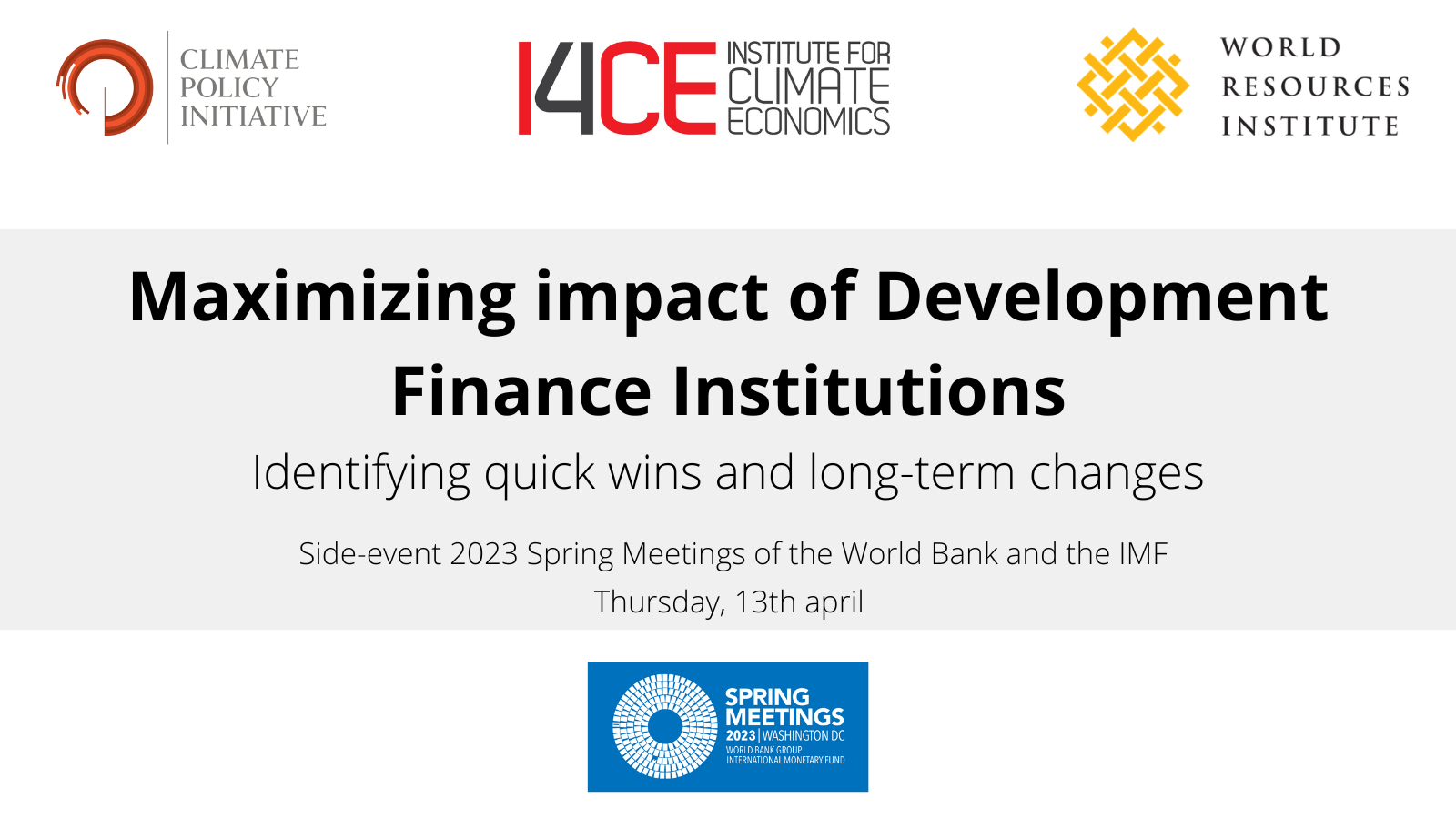Maximizing impact of Development Finance Institutions tomorrow
Conferences - By : Alice PAUTHIER / Claire ESCHALIER
Context
In 2022, a global consensus was reached on the need to reform the global financial architecture, considered no longer “fit for purpose”. 2023 will be busy with many events organised to address different parts of the financial architecture reform agenda. The Spring Meetings of the World Bank and the International Monetary Fund represent the first key milestone in this agenda.
Development Finance Institutions (DFIs) play a key role in directing international public finance. The pressure on them is strong, with shareholders, beneficiaries and the general public expecting them to increase the volume of funds mobilised, in the current context of multiple crises. Much of the debate concentrates on this major challenge. But in addition to the volume of their resources, attention should also be given to the way public development banks operate to maximise the impact of their activities on the sustainable transition of national economies.
Objectives
This side-event seeked to bring in the debate IFIs, shareholders, recipient countries and experts from CSOs to exchange on how to best deploy international development finance – ensuring maximum efficiency – in line with countries’ specific needs for a sustainable transition.
Format: closed workshop.
Organizers: Institute for Climate Economics I4CE, World Resources Institute (WRI), Climate Policy Initiative (CPI).
Date: April 13th, 03:00-04:30 PM (Paris time), 09:00-10:30 AM (Washington time)
Moderator: Bella Tonkonogy, Climate Finance Director, Climate Policy Initiative. Welcome remarks: Valerie Laxton, Senior Associate, World Resources Institute. Keynote speech: Laurence Tubiana, CEO of the European Climate Foundation (ECF). Introductory presentations: What to expect from DFIs? Where is their support most needed for the transition to sustainable economies? Where can they have the most impact? Panel discussion: Perspectives of Development Banks: How have DFIs already started to increase their impact for the transition of countries towards a sustainable development? How could they further maximise impact of operations? What quick wins and long-term changes over different time horizons? Questions and Answers Concluding remarks: How can the reform agenda foster the transformation of DFIs for transformational impact? Provisional agenda:
About CPI:
CPI is an analysis and advisory organization with deep expertise in finance and policy. Our mission is to help governments, businesses, and financial institutions drive economic growth while addressing climate change. Our vision is to build a sustainable, resilient, and inclusive global economy.
About I4CE:
I4CE is a non-profit research organisation that provides independent policy analysis on climate change mitigation and adaptation. We promote climate policies that are effective, efficient and socially fair. Our 40 experts engage with national and local governments, the European Union, international financial institutions, civil society organisations and the media. Our work covers three key transitions – energy, agriculture, forests – and addresses six economic challenges: investment, public financing, development finance, financial regulation, carbon pricing and carbon certification.
About WRI:
WRI is a global nonprofit organization that works with leaders in government, business and civil society to research, design, and carry out practical solutions that simultaneously improve people’s lives and ensure nature can thrive.